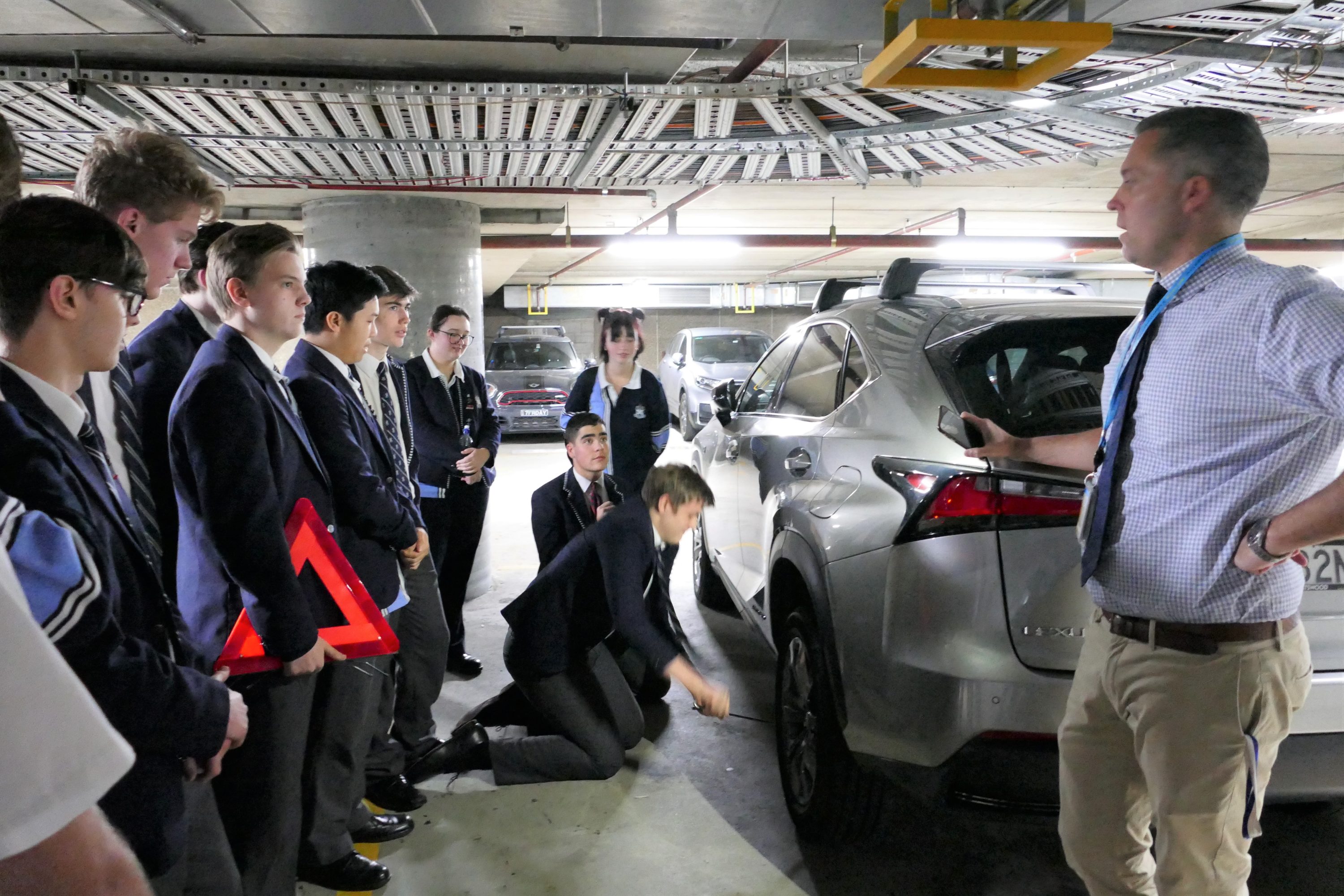As our students come towards the end of their schooling, Senior College offers support, assistance and advice to students and parents negotiating this significant age and stage of development.
We take a comprehensive approach to student wellbeing, and Senior College’s highly relational environment ensures every student is valued, known and supported. We have high expectations of all our students because we believe that each student matters. Research shows that student wellbeing and growth in character are tied to the experience of successful learning, and therefore we believe in the importance of a disciplined, challenging and stimulating classroom environment.
The School’s 15 Character Strengths sit at the centre of our student wellbeing framework. Our approach to teaching character has been incorporated into Approaches to Learning Skills (ATLs) and the IB learning dispositions.
Our students engage with the School Character Strengths throughout Years 7 to 12 in many varied and intentional ways. Character education equips our young people to grow in wisdom, hope, community, and dignity, and is shaped by an understanding of God at work in the world, actively shaping each individual story. Our students regularly hear about our Character Strengths from members of staff in assemblies or Chapel. Each student identifies their own character strengths using the VIA Character Survey and reflects on their individual and group strengths. This provides an opportunity for each student to discuss how their strengths can be used to help overcome obstacles and give them tools to improve areas that may not be as strong. Students are also encouraged to put their strengths into action when they are participating in the many different areas of School life, including the many service activities we offer that give students opportunities to help those less fortunate in our local communities.
Our structures and programmes are delivered by staff who genuinely care for students and seek to develop in students a strong sense of identity, resilience and connectedness in all areas of school life – from the classroom to the playing fields.
House system
Every Senior College student is a member of a House and year-level-based tutor group. These groups meet together in tutorial periods twice a week for one pastoral tutorial and one academic. The Houses meet on a regular basis and sit together during Chapel and Cathedral gatherings each week. These regular gatherings allow tutors and the Head of House to develop a sound relationship with the students in their care.
In most cases, tutors remain with the students through to Year 12, following their progress through the senior years. The tutorial programme incorporates study skills, social and community education, leadership and life skills. As such, sessions are structured and planned, based on the age, experience and knowledge of students. The House system enables students to participate in and contribute to a comprehensive range of activities. Students are awarded House points for both participation and success in the swimming and athletics carnivals, Inter-House debating, SACS Factor (talent show), Big City Bake Off (a themed cupcake competition fundraiser) and Gala Day (sports/team activities). Points go towards The Dean Pitt Shield, which is awarded to the winning House at the end-of-year Evening of Celebration and Prize-giving.
Classroom teachers, Tutors, Heads of House, Heads of Division and Directors of Learning monitor the academic progress and wellbeing of all students. This ensures that every student is known and cared for throughout the School.
St Andrew’s Cathedral School has been acknowledged within the sector for its innovative use of data to determine the progress of students, and to allow for goal setting, reflection and timely interventions.

Tutorial programme
Some of the main topics covered in the sequential tutorial programme are:
- Year 10: Positive relationships including consent, gratitude and service, House based competitions to build community, Character role models and the good life; meaningfulness and reflecting on success.
- Year 11: Self-management and effective study skills, gratitude and health, peer-to-peer mentoring with the Junior School, character development and identifying and telling good stories, leadership skills and academic accomplishment.
- Year 12: Health and self-care, managing stress, gratitude and service learning, Life Hacks practical life skills programme.
The Senior College also has two dedicated counsellors who are experienced in providing advice and support on pastoral and academic issues affecting students.
Timetable structure
Senior College has continually honed its timetable structure to match the needs of students, as they reach the final years of school life.
Based on research findings that students learn most effectively in the morning, pastoral periods are strategically scheduled for the time slot just before lunchtime, allowing students to maximise their learning potential in the mornings. Similarly, study skills workshops are scheduled for strategic times over the course of the three senior years, not just in Year 12 or before important exam periods.
You may also be interested in
